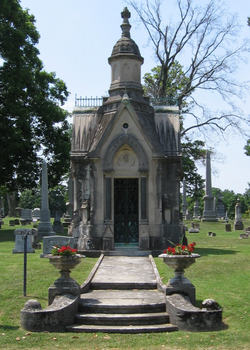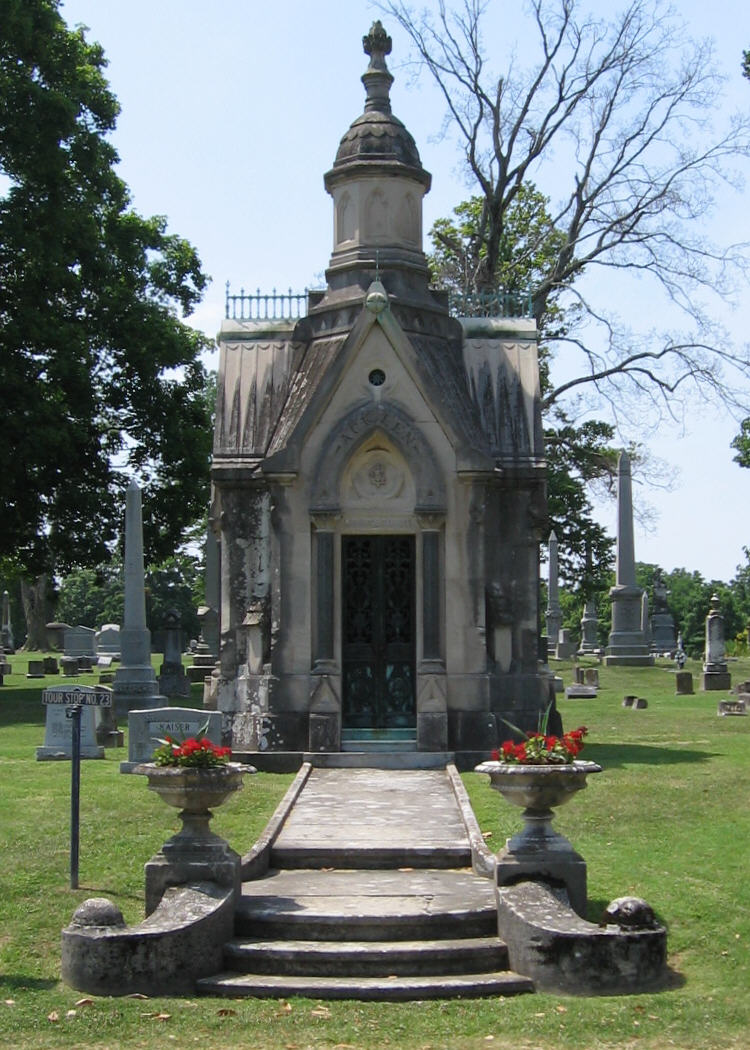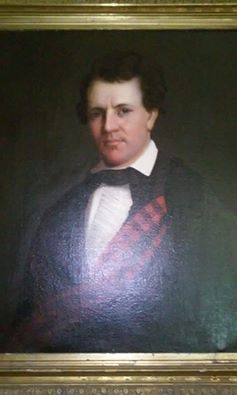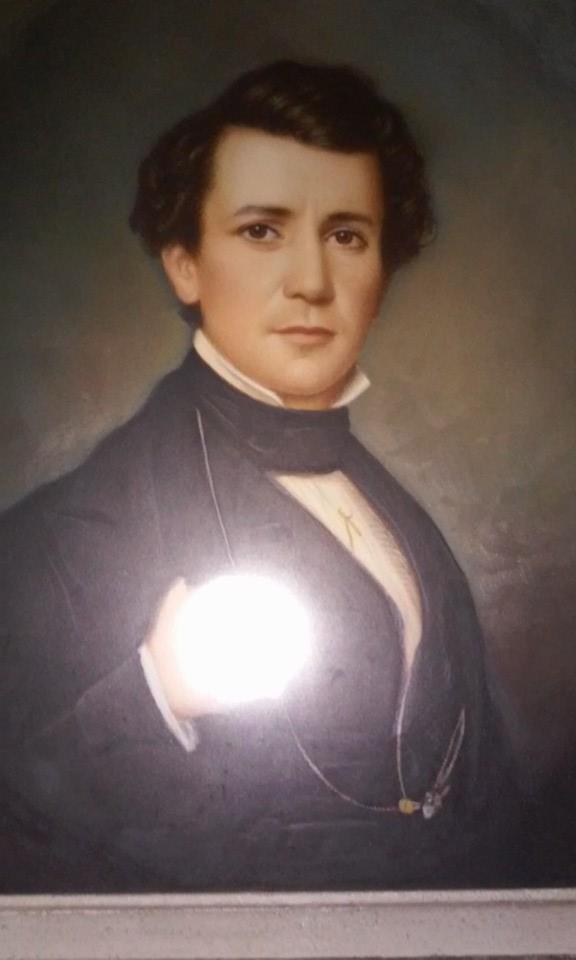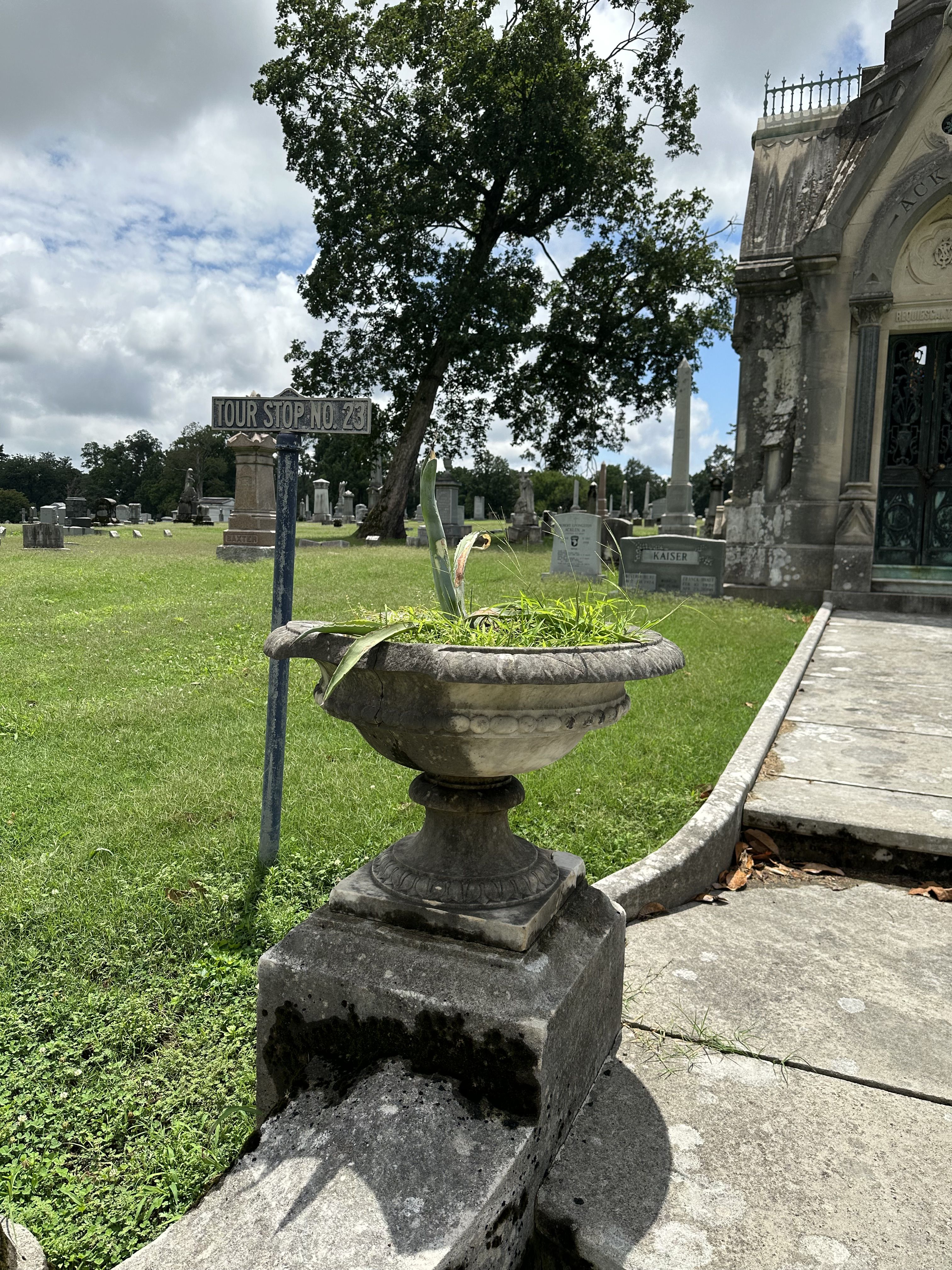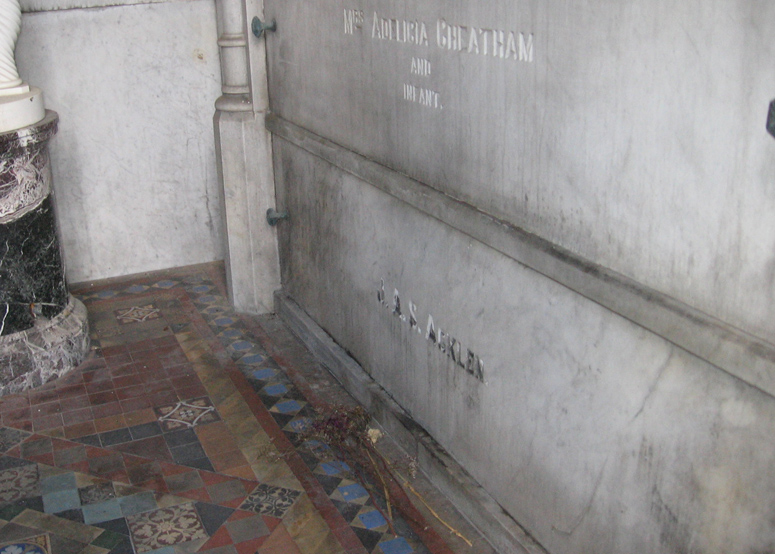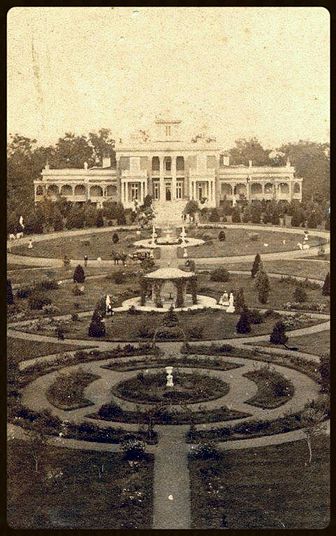Joseph and Adelicia were apparently very happy. They were married for 14 years, and during that time they had 6 children together, including their first son, Joseph Hayes Acklen, who later became an attorney, Congressman, and the first game warden for the state of Tennessee before earning notoriety as legal counsel for the Tennessee suffragettes who helped get women the right to vote. By the outbreak of the Civil War, Joseph had tripled the value of his wife's million-dollar estate; at one point, the Acklens were the wealthiest family in both Tennessee and Louisiana. Consisting of 36 rooms and 20,000 square feet, Belmont, the Acklen summer home, was one of the grandest houses in the South and is the second largest antebellum home still standing in the United States.
In February 1862, Nashville became the first major Confederate city to fall to the Union army. At Adelicia's suggestion, Joseph fled to Louisiana, where he could personally oversee the plantations that were their main source of income. Acklen died on September 11, 1863, apparently of an illness contracted following a carriage accident. According to family tradition, Joseph's carriage plunged into a bayou, forcing him to walk home in wet clothes, which led to him coming down with a fatal fever. Originally buried in Louisiana, he was later moved to the Acklen family mausoleum in Nashville.
Although overshadowed by his remarkable wife, Joseph A. S. Acklen was an interesting and important man in his own right. He wrote a monograph on plantation management and was noted for his humanitarian treatment of his slaves. He supported the filibustering schemes of Nashville's "Gray-Eyed Man of Destiny," William Walker, in Central America, probably in the belief that expansion into the Caribbean nations would delay or avoid the Civil War. While Acklen did finance a company of East Tennessee Confederates--the Acklen Rifles, as they called themselves in his honor--Acklen himself seems to have harbored ambivalent feelings about slavery. His last surviving letter home indicates his belief that the South had no chance of winning the war and that he would be glad to see the end of slavery, as he had never been much in favor of the "peculiar institution." Perhaps most importantly, Joseph A. S. Acklen saved and expanded his wife's already considerable fortune and sired the Nashville branch of a family that has brought considerable prestige and honor to Tennessee and the nation at large.
Joseph and Adelicia were apparently very happy. They were married for 14 years, and during that time they had 6 children together, including their first son, Joseph Hayes Acklen, who later became an attorney, Congressman, and the first game warden for the state of Tennessee before earning notoriety as legal counsel for the Tennessee suffragettes who helped get women the right to vote. By the outbreak of the Civil War, Joseph had tripled the value of his wife's million-dollar estate; at one point, the Acklens were the wealthiest family in both Tennessee and Louisiana. Consisting of 36 rooms and 20,000 square feet, Belmont, the Acklen summer home, was one of the grandest houses in the South and is the second largest antebellum home still standing in the United States.
In February 1862, Nashville became the first major Confederate city to fall to the Union army. At Adelicia's suggestion, Joseph fled to Louisiana, where he could personally oversee the plantations that were their main source of income. Acklen died on September 11, 1863, apparently of an illness contracted following a carriage accident. According to family tradition, Joseph's carriage plunged into a bayou, forcing him to walk home in wet clothes, which led to him coming down with a fatal fever. Originally buried in Louisiana, he was later moved to the Acklen family mausoleum in Nashville.
Although overshadowed by his remarkable wife, Joseph A. S. Acklen was an interesting and important man in his own right. He wrote a monograph on plantation management and was noted for his humanitarian treatment of his slaves. He supported the filibustering schemes of Nashville's "Gray-Eyed Man of Destiny," William Walker, in Central America, probably in the belief that expansion into the Caribbean nations would delay or avoid the Civil War. While Acklen did finance a company of East Tennessee Confederates--the Acklen Rifles, as they called themselves in his honor--Acklen himself seems to have harbored ambivalent feelings about slavery. His last surviving letter home indicates his belief that the South had no chance of winning the war and that he would be glad to see the end of slavery, as he had never been much in favor of the "peculiar institution." Perhaps most importantly, Joseph A. S. Acklen saved and expanded his wife's already considerable fortune and sired the Nashville branch of a family that has brought considerable prestige and honor to Tennessee and the nation at large.
